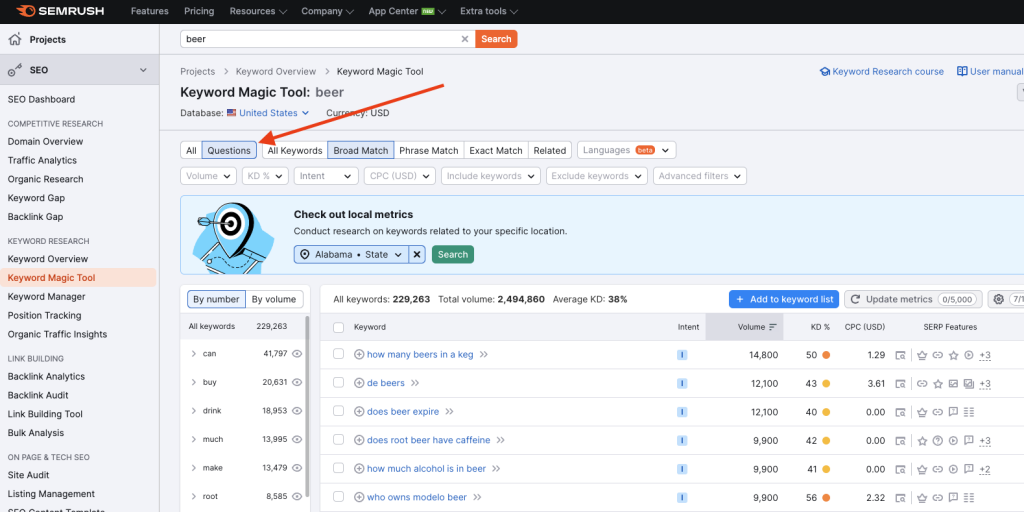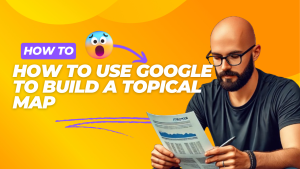Building a content strategy should not be about just following keywords and search volumes. It needs to be deeper than that.
With that in mind, here are 7 questions I use to drive content strategies I put together.
1) Who are you trying to reach / who are your users?
Without a deep understanding of who your customers or users are, you will be largely flying blind when putting together a content strategy.
I shared another note about building [[Creating a Persona in ChatGPT|a persona]] to help identify your target market. The insights you can gain from understanding who you are trying to reach will help greatly in shaping your content strategy.
What kind of content do they consume? Are they DIY’ers or people looking to solve a problem by outsourcing a solution? What are similar products and services they buy? What kind of tone do those companies use?
2) What problem or problems does your product / service solve?
This is a huge one and what will shape a lot of the direction of any good content strategy.
What kind of problems and questions are people searching about online that you can offer a solution to?
You can sometimes build an entire cluster of dozens of pages around just answering questions that people need help with. This also helps with topical authority.
I love to go to Semrush’s Keyword Magic Tool and feed in seed keywords. Then grab all the questions people are searching for.

You can also search in Reddit and scrape People Also Ask questions for ideas about what people are asking about in relation to topics you can offer a solution to.
3) Who are your competitors?
This is a pretty obvious one, so I’m not going to spend much time on it.
However, when creating a content strategy, I think it is important to make a clarification. Primary competitors for a business are not always the same as SEO competitors.
Let me give you a hypothetical example. Pretend you were launching a new company that made running shoes for runners.
When asked who your competitors are, it would be easy to say Brooks, Asics, Nike, Hoka, etc. That answer might very well be true for in stores and in the marketplace, but from an SEO perspective, those are established, well-known brands.
They are not focused on SEO campaigns geared towards selling their products. They are focused on continuing to build their brand image, taking out ads in popular running publications, and running commercials on TV.
When looking at developing a content plan to try to move product, the competition would be sites like Runners World that publishes content about running shoes.
4) What differentiates you from your competitors?
If there is something that your product or service offers that none of your competitors do or that you do better than them, this is an important thread to weave throughout most, if not all, content that gets produced.
Offering better customer service is not a differentiator. Everyone says they do that. It has to something real and tangible that you can offer.
ShipBob is one of the largest third-party logistics companies in the United States. Nobody that offers order fulfillment has a bigger network of fulfillment centers and warehouses except for Amazon.
It gives them a true competitive advantage.
Any chance they get to mention the benefit of working with an order fulfillment provider with locations all across the country versus one with just one or a few locations, they absolutely do it.
Where this gives them an SEO edge, I believe, is in information gain.
When they publish something about the best order fulfillment companies for whatever or any kind of guides for ecommerce companies, they will mention how working with a partner that has warehouses all over the country can give their ecommerce store an advantage in faster delivery times and less expensive costs.
The majority of their competitors won’t mention something like this because they can’t offer it.
Information gain. If you don’t know what information gain in SEO is, look it up.
5) Are there any websites / publications frequently visited or read by your target audience?
This can give you insights into what kind of content your target audience likes to consume, so that you can generate content that matches their taste.
As Google moves more and more towards looking at engagement and user signals for rankings, it is becoming increasingly important to publish content that not only matches a search intent but also resonates with your target audience.
6) What is the purpose of your content?
Your content strategy and campaigns need to have a goal in mind. Don’t just start firing off content without an end goal.
What do you hope to achieve with the content?
Is it to drive sales or generate leads?
Is it to help create brand awareness?
Is your company looking to attract investors?
The type of content and topics you would cover for each of these three objectives would be drastically different.
7) Who is responsible for producing the content?
This is an important discussion to have with your team, your clients, or yourself before building out your next content campaign.
I think this one too often gets overlooked. It’s important to take inventory of your resources before creating your content plan.
I can build a plan that includes a web of content stretching across 100s of articles, but if the team I’m working with only has the bandwidth to publish 2 articles a week, then what’s the point of putting together a plan at that kind of scale?


